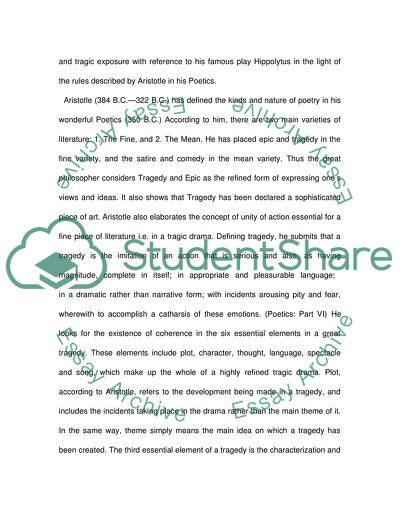Cite this document
(Euripides as a Poet of Ancient Greece Essay Example | Topics and Well Written Essays - 1250 words, n.d.)
Euripides as a Poet of Ancient Greece Essay Example | Topics and Well Written Essays - 1250 words. https://studentshare.org/biographies/1724496-compare-two-reading-about-greek-tragedy
Euripides as a Poet of Ancient Greece Essay Example | Topics and Well Written Essays - 1250 words. https://studentshare.org/biographies/1724496-compare-two-reading-about-greek-tragedy
(Euripides As a Poet of Ancient Greece Essay Example | Topics and Well Written Essays - 1250 Words)
Euripides As a Poet of Ancient Greece Essay Example | Topics and Well Written Essays - 1250 Words. https://studentshare.org/biographies/1724496-compare-two-reading-about-greek-tragedy.
Euripides As a Poet of Ancient Greece Essay Example | Topics and Well Written Essays - 1250 Words. https://studentshare.org/biographies/1724496-compare-two-reading-about-greek-tragedy.
“Euripides As a Poet of Ancient Greece Essay Example | Topics and Well Written Essays - 1250 Words”. https://studentshare.org/biographies/1724496-compare-two-reading-about-greek-tragedy.


